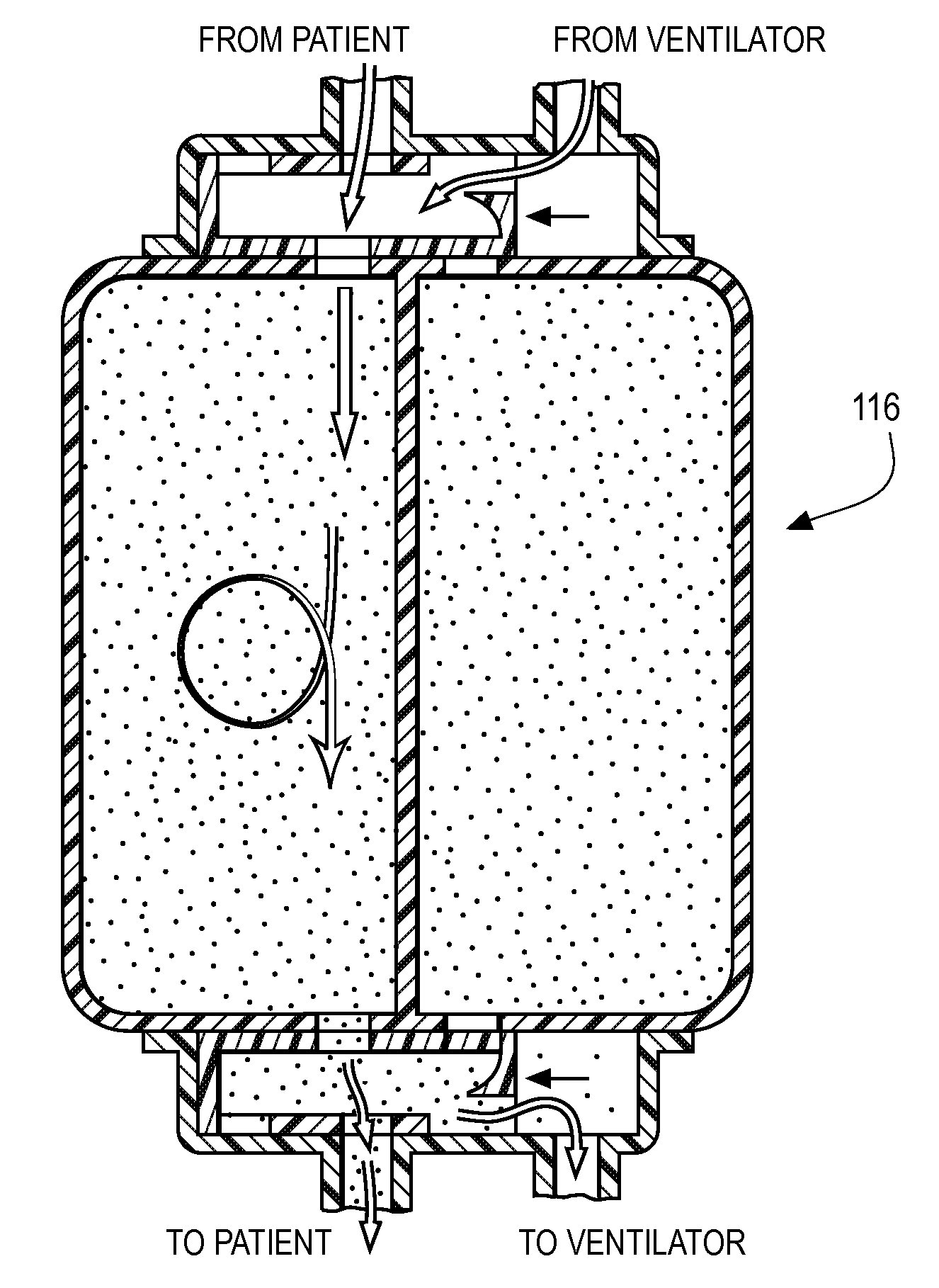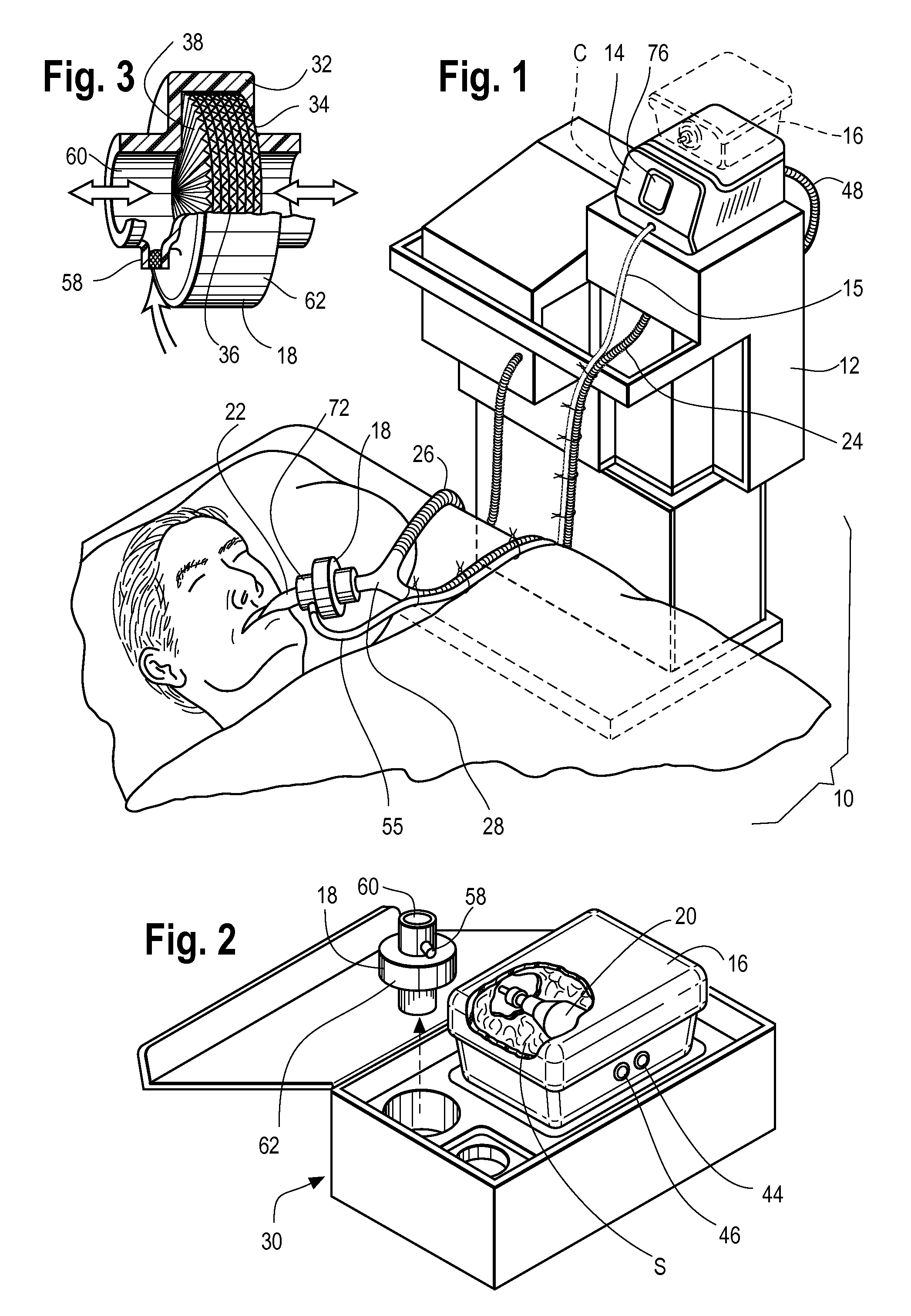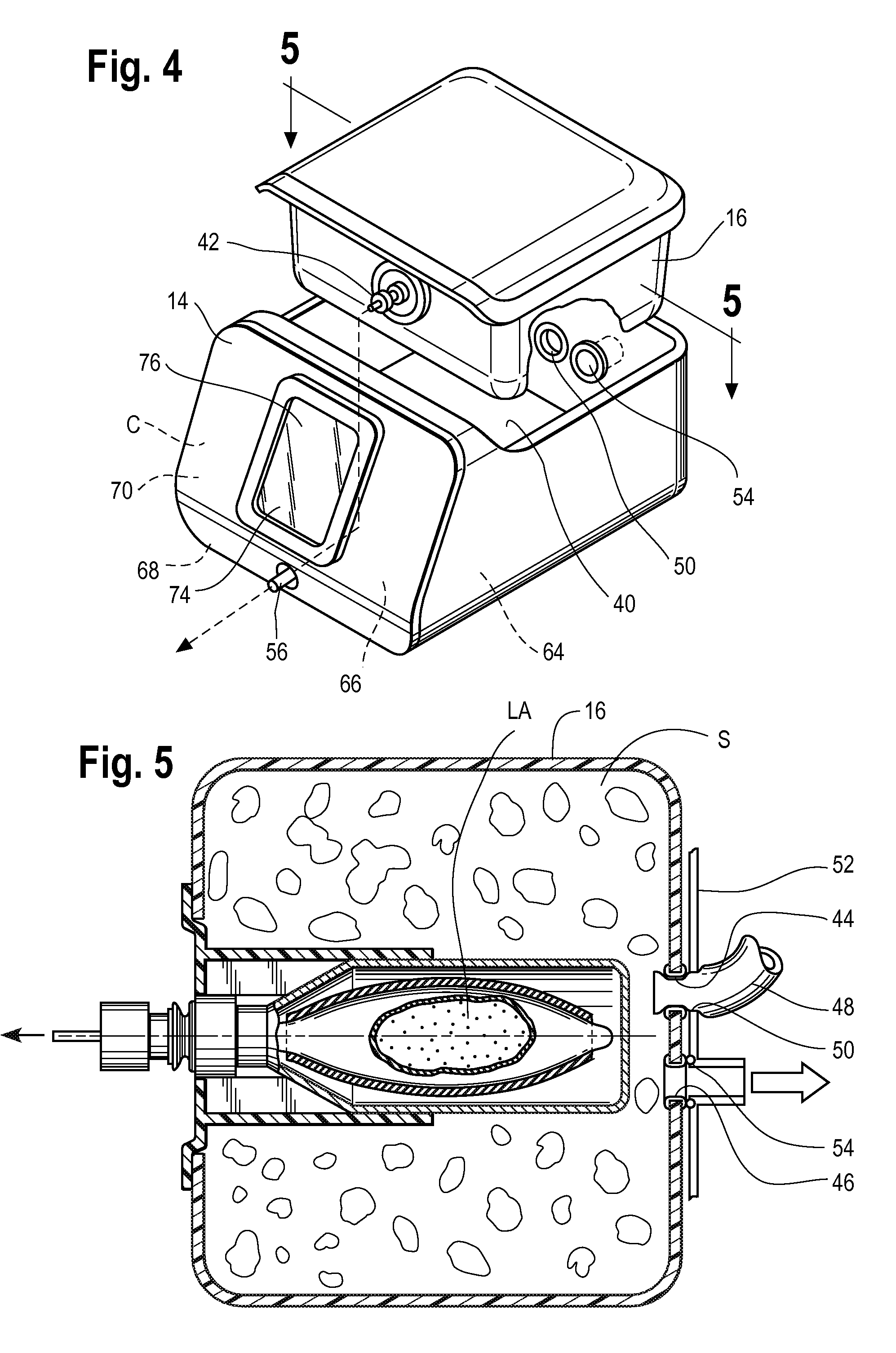Inhaled anesthetic agent therapy and delivery system
an anesthetic agent and inhalation technology, applied in the field of inhalation anesthetic agent therapy and delivery system, can solve the problems of prolonged elimination, worrisome agents for clinicians, and less attractive agents of sevoflurane, and achieve the effect of reducing or replacing the use, reducing the risk of infection, and improving the safety of patients
- Summary
- Abstract
- Description
- Claims
- Application Information
AI Technical Summary
Benefits of technology
Problems solved by technology
Method used
Image
Examples
Embodiment Construction
[0026]In order to integrate with a typical ICU ventilator, the hardware platform must provide many of the functions of a modern anesthesia workstation including a method for the controlled delivery of volatile anesthetic vapor to the patient airway, a method for clearing of exhaled carbon dioxide (CO2), a method of producing adequate airway humidification, and a method of sequestering of exhaust anesthetic vapor to prevent pollution of the clinical environment. In addition, in order to be compatible with modern ICU ventilators, the therapy must be relatively pneumatically transparent to the ventilator. Pneumatic transparency implies that the therapy will not introduce a large amount of compressible volume to the patient circuit (in order to prevent lowered effective ventilation i.e. subsequent reductions in the volume of fresh gas entering the patients lungs). Further, the therapy must not introduce significant additional resistance to gas flow in the patient circuit as flow resista...
PUM
 Login to View More
Login to View More Abstract
Description
Claims
Application Information
 Login to View More
Login to View More - R&D
- Intellectual Property
- Life Sciences
- Materials
- Tech Scout
- Unparalleled Data Quality
- Higher Quality Content
- 60% Fewer Hallucinations
Browse by: Latest US Patents, China's latest patents, Technical Efficacy Thesaurus, Application Domain, Technology Topic, Popular Technical Reports.
© 2025 PatSnap. All rights reserved.Legal|Privacy policy|Modern Slavery Act Transparency Statement|Sitemap|About US| Contact US: help@patsnap.com



